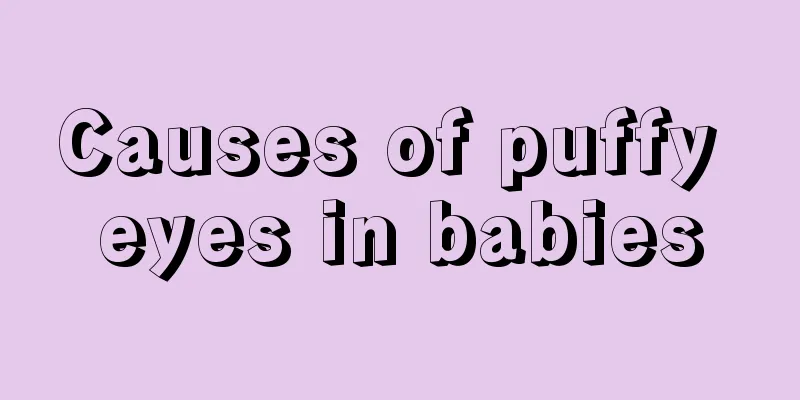2-year-old baby's teeth are yellow

|
At about six months, the baby's teeth have already grown. The newly grown teeth are deciduous teeth and are not very mature yet, but the baby can also eat some slightly harder food. After the age of 2, the deciduous teeth are basically fully grown. Newly grown teeth are generally very white, but why do some 2-year-old babies have yellow teeth? Parents should pay attention to whether it is caused by night feeding, and on the other hand, they should also pay attention to oral hygiene. One is the baby's night feeding Many babies develop the bad habit of drinking milk at night due to psychological dependence. They will cry and refuse to sleep if they don’t drink milk at night. Many mothers are afraid that their babies will be hungry, and in order to make their babies sleep well, they have to compromise. However, for babies over one year old, drinking milk at night is mostly because they seek psychological comfort. Saliva secretion decreases during sleep, and the food that babies eat is mostly liquid, which easily adheres to the soft tissue mucosa around the mouth. If you don't pay attention to cleaning, it will become a breeding ground for bacteria. Milk stains, food residues and bacteria work together to ferment and produce acid, which accumulates over time and leads to the risk of tooth decay. Second, neglecting the baby's oral hygiene Some mothers do not pay attention to their babies' oral hygiene when taking care of them. On the one hand, they think that babies do not have teeth and do not need cleaning; on the other hand, some parents think that babies will change their teeth in the future and it should not affect the growth of permanent teeth. However, if you do not pay attention to cleanliness and hygiene during the period when your baby is growing deciduous teeth, it will also affect the growth of your baby's permanent teeth. Third, the baby is calcium deficient If the mother does not take calcium supplements during pregnancy, the baby's tooth enamel may not develop well. Calcium intake affects the structure of tooth enamel, and calcium deficiency can easily lead to incomplete enamel development. When teeth lack the protection of enamel, some common bacteria will take advantage of the situation and firmly adhere to the tooth surface and pits and fissures to form dental plaque, causing children's teeth to turn yellow and black. Not only that, these plaques are also prone to produce a large amount of acidic substances, causing the enamel surface under the plaque to decalcify and dissolve, destroying the dentin. When you discover that your baby has yellow teeth, timely calcium supplementation can not only strengthen the physique, but also make the permanent teeth that will grow out whiter. If the baby's teeth have already decalcified, timely treatment is needed. In the early stage of decalcification, the ion components in the baby's saliva can be used, or fluoride can be applied to the surface of the baby's teeth to help recalcification. If it is in the later stage, professional treatment by a doctor is required. |
<<: How to communicate with children with autism?
>>: What are the sensitive periods of babies?
Recommend
What are the reasons for baby spitting up?
It is very common for infants and young children ...
What to do if your child has corns on his feet
I don’t know if you have seen some patients in li...
What's wrong with the red spots on the whites of my baby's eyes?
If the baby feels unwell, parents should take the...
Key points for standard care of infant development at three months
In fact, you should be extremely careful in carin...
How old can a child speak?
Some people say that children's voices are th...
What should I do if my child has a thick yellow tongue coating? The medicine is right beside you.
Parents must always pay attention to the baby'...
How can I relieve long-term constipation in children?
Children's gastrointestinal function is relat...
What is the exact age of development for girls?
The one-child policy has made every family pay sp...
What to do if a child has repeated fever and cough
It is never good for a baby to be sick, which mak...
What to do if your child has an asthma relapse
In recent years, new concepts have emerged in the...
Child care knowledge
Children are the hope of every family and the flo...
What causes the baby's stomach to make noises when feeding?
Many young mothers will find a somewhat strange p...
Why do children cough when they have a fever?
Compared with adults, children have relatively po...
What should I do if my baby keeps having hiccups?
Baby hiccups are a common problem for parents. Ba...
What to do if your baby has otitis media
Otitis media is a common symptom in early childho...









